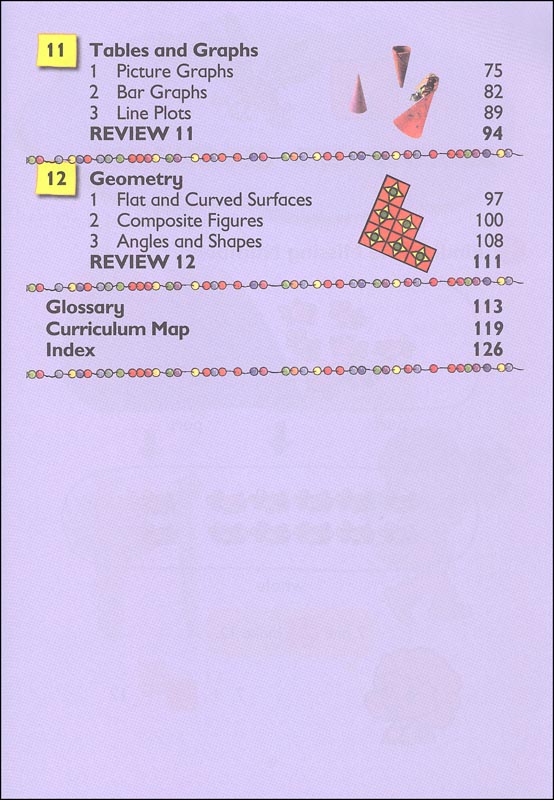

Relate multiplication and division for groups ( 3-I.3 ).
 3.OA.B.6 Understand division as an unknown-factor problem. Relate multiplication and division ( 3-N.11 ). Solve using properties of multiplication ( 3-N.9 ). Multiply using the distributive property ( 3-N.8 ). Distributive property: find the missing factor ( 3-N.7 ). Multiply one-digit numbers by three-digit numbers using area models II ( 3-H.15 ). Multiply one-digit numbers by three-digit numbers using area models I ( 3-H.14 ). Multiply one-digit numbers by two-digit numbers using area models II ( 3-H.11 ). Multiply one-digit numbers by two-digit numbers using area models I ( 3-H.10 ). 3.OA.B.5 Apply properties of operations as strategies to multiply and divide. 3.OA.B Understand properties of multiplication and the relationship between multiplication and division. Division facts up to 10: find the missing number ( 3-K.10 ). Multiplication facts up to 10: find the missing factor ( 3-G.12 ). Multiplication facts for 6, 7, 8, and 9: find the missing factor ( 3-G.8 ). Multiplication facts for 2, 3, 4, 5, and 10: find the missing factor ( 3-G.4 ). 3.OA.A.4 Determine the unknown whole number in a multiplication or division equation relating three whole numbers. Write variable equations to represent word problems: multiplication and division only ( 3-O.5 ). Solve for the variable: multiplication and division only ( 3-O.3 ). Multiplication and division word problems ( 3-M.10 ). Multiplication word problems: find the missing factor ( 3-H.7 ). 3.OA.A.3 Use multiplication and division within 100 to solve word problems in situations involving equal groups, arrays, and measurement quantities, e.g., by using drawings and equations with a symbol for the unknown number to represent the problem. Write division sentences for arrays ( 3-I.4 ). Write division sentences for groups ( 3-I.2 ). Divide by counting equal groups ( 3-I.1 ).
3.OA.B.6 Understand division as an unknown-factor problem. Relate multiplication and division ( 3-N.11 ). Solve using properties of multiplication ( 3-N.9 ). Multiply using the distributive property ( 3-N.8 ). Distributive property: find the missing factor ( 3-N.7 ). Multiply one-digit numbers by three-digit numbers using area models II ( 3-H.15 ). Multiply one-digit numbers by three-digit numbers using area models I ( 3-H.14 ). Multiply one-digit numbers by two-digit numbers using area models II ( 3-H.11 ). Multiply one-digit numbers by two-digit numbers using area models I ( 3-H.10 ). 3.OA.B.5 Apply properties of operations as strategies to multiply and divide. 3.OA.B Understand properties of multiplication and the relationship between multiplication and division. Division facts up to 10: find the missing number ( 3-K.10 ). Multiplication facts up to 10: find the missing factor ( 3-G.12 ). Multiplication facts for 6, 7, 8, and 9: find the missing factor ( 3-G.8 ). Multiplication facts for 2, 3, 4, 5, and 10: find the missing factor ( 3-G.4 ). 3.OA.A.4 Determine the unknown whole number in a multiplication or division equation relating three whole numbers. Write variable equations to represent word problems: multiplication and division only ( 3-O.5 ). Solve for the variable: multiplication and division only ( 3-O.3 ). Multiplication and division word problems ( 3-M.10 ). Multiplication word problems: find the missing factor ( 3-H.7 ). 3.OA.A.3 Use multiplication and division within 100 to solve word problems in situations involving equal groups, arrays, and measurement quantities, e.g., by using drawings and equations with a symbol for the unknown number to represent the problem. Write division sentences for arrays ( 3-I.4 ). Write division sentences for groups ( 3-I.2 ). Divide by counting equal groups ( 3-I.1 ). 
3.OA.A.2 Interpret whole-number quotients of whole numbers, e.g., interpret 56 ÷ 8 as the number of objects in each share when 56 objects are partitioned equally into 8 shares, or as a number of shares when 56 objects are partitioned into equal shares of 8 objects each.Relate addition and multiplication ( 3-N.10 ).Write multiplication sentences for number lines ( 3-E.8 ).Make arrays to model multiplication ( 3-E.7 ).Write two multiplication sentences for an array ( 3-E.Write multiplication sentences for arrays ( 3-E.6 ).Identify multiplication expressions for arrays ( 3-E.5 ).Relate addition and multiplication for equal groups ( 3-E.4 ).Write multiplication sentences for equal groups ( 3-E.3 ).Identify multiplication expressions for equal groups ( 3-E.2 ).3.OA.A.1 Interpret products of whole numbers, e.g., interpret 5 × 7 as the total number of objects in 5 groups of 7 objects each.3.OA.A Represent and solve problems involving multiplication and division.







 0 kommentar(er)
0 kommentar(er)
